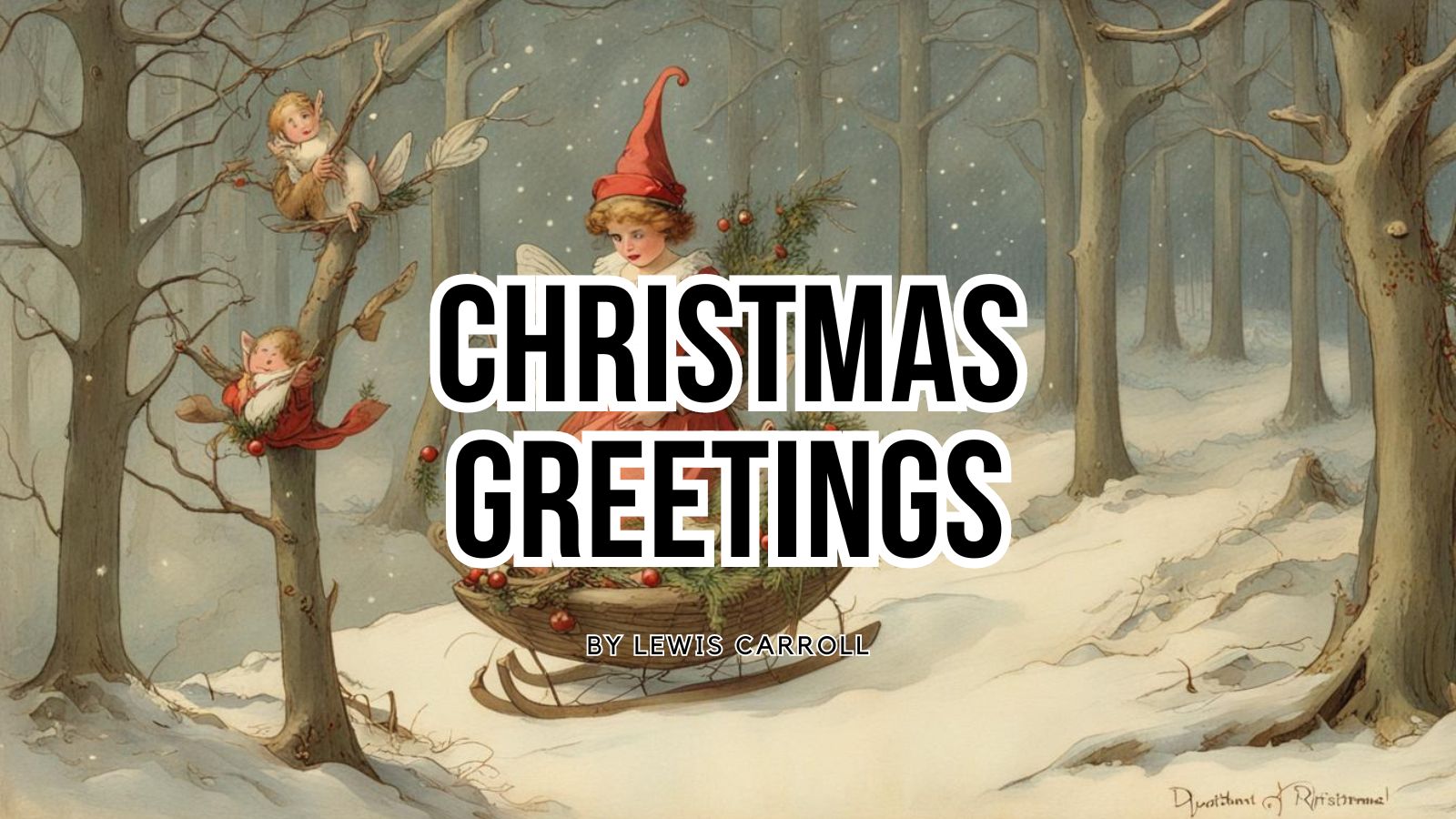Christmas Greetings
[FROM A FAIRY TO A CHILD.]
by Lewis Carroll
Lady dear, if Fairies may
For a moment lay aside
Cunning tricks and elfish play,
‘Tis at happy Christmas-tide.
We have heard the children say—
Gentle children, whom we love—
Long ago, on Christmas Day,
Came a message from above.
Still, as Christmas-tide comes round,
They remember it again—
Echo still the joyful sound
“Peace on earth, good-will to men!”
Yet the hearts must childlike be
Where such heavenly guests abide:
Unto children, in their glee,
All the year is Christmas-tide!
Thus, forgetting tricks and play
For a moment, Lady dear,
We would wish you, if we may,
Merry Christmas, glad New Year!
Christmas, 1867.
###
Lewis Carroll was the pen name of Charles Lutwidge Dodgson, born in 1832 in Cheshire, England. Best known for his whimsical children’s stories Alice’s Adventures in Wonderland and Through the Looking-Glass, Carroll was an English writer, mathematician, photographer, and Anglican deacon. As a mathematics lecturer at Christ Church college, Oxford for over 25 years, Carroll had a natural talent for puzzles, logic, and fantasy that was woven throughout his literary works. His creative children’s stories featuring Alice exploring nonsensical dreamworlds became beloved classics of imaginative literature. As an early photography enthusiast, Carroll frequently photographed children in his life, including the daughters of friends that inspired his character Alice. While Dodgson lived a rather reclusive life devoted to academia and creative pursuits, his alter ego Lewis Carroll became one of the most popular children’s storytellers of the 19th century, with imaginative tales of fantasy exploration that continue to captivate readers young and old.
